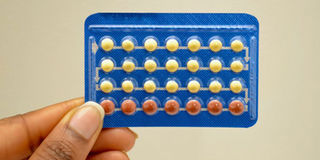Contraceptive shortage hits the country

What you need to know:
- Up to 80 per cent of reproductive, maternal, newborn, child and adolescent health (RMNCAH) commodities, including contraceptives in the country, are funded through donor programmes.
KAMPALA. Women and adolescent girls risk getting unwanted pregnancies as the country grapples with scarcity of contraceptives.
Dr Placid Mihayo, the family planning focal person at the Ministry of Health, acknowledged the shortage.
“Yes. We have a shortage and we are redistributing [contraceptives]. I want to stop at that,” Dr Mihayo said in a telephone interview on Tuesday.
Redistribution means that the contraceptives are taken from those health facilities that may have surplus to those which do not have.
According to a source privy to the situation, a meeting of the technical working group on family planning composed of ministry officials and civil society sat last week to update the status of family planning in the country and lack of funds was given as cause for the shortage
The contraceptives, including sayana press (self-injectable), Jadelle implants, implanon implant, and emergency pills, have been scarce since May.
“The ministry officials were asking partners who fund family planning commodities in the country to help them with funds so as to secure the situation,” the source told Daily Monitor on condition of anonymity.
Mr Denis Kibira, the executive director of HEPS– Uganda, a health rights organisation with a special focus on working to increase access to essential medicines, blames the recurrent problem on over dependency on funders
Contraceptives
Scarcity. Up to 80 per cent of reproductive, maternal, newborn, child and adolescent health (RMNCAH) commodities, including contraceptives in the country, are funded through donor programmes.
The National Population Council (NPC) also last week revealed that the country will not be able to meet the family planning 2020 targets within the next five months remaining to the deadline.




